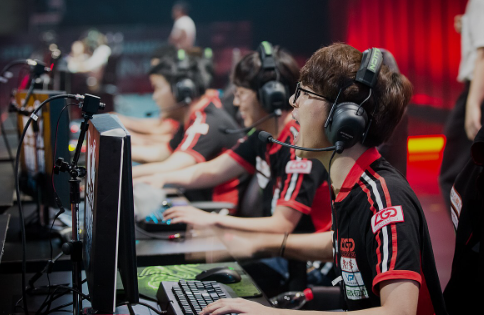Esports: The Rise of Competitive Gaming in the Digital Age
In the past two decades, esports has transformed from a niche pastime into a global entertainment phenomenon. What was once a hobby for gamers has now evolved into a billion-dollar industry, with millions of fans, professional teams, and high-stakes tournaments. As competitive gaming continues to rise in popularity, it’s clear that esports is reshaping the landscape of sports, entertainment, and digital culture.
In this article, we will explore the rise of esports, its impact on the gaming industry, the emergence of professional leagues, and the cultural shift that has propelled gaming into the spotlight.
The Origins of Esports
The roots of esports can be traced back to the early days of multiplayer gaming. As far back as the 1970s, competitive video game events began to emerge, with players competing in games like Space Invaders and Pong. However, it wasn’t until the 1990s and early 2000s that competitive gaming began to take shape in a more organized fashion.
In the early years, games like Quake, StarCraft, and Warcraft became the foundation of esports tournaments. The rise of internet cafes and the expansion of the internet itself allowed gamers from around the world to compete in online tournaments. By the mid-2000s, World Cyber Games (WCG) and the Electronic Sports World Cup (ESWC) became major events, with thousands of players and spectators tuning in.
The real turning point for esports came with the release of League of Legends (LoL) in 2009. LoL’s deep strategy and competitive nature attracted a global audience, and it quickly became one of the most-watched esports games in history. Over time, other titles such as Dota 2, Overwatch, Fortnite, and Counter-Strike: Global Offensive (CS:GO) began to rise in prominence, creating a booming esports ecosystem.
The Growth and Popularity of Esports
Esports’ popularity has been fueled by several factors. First and foremost, the rapid growth of internet connectivity and the rise of streaming platforms such as Twitch, YouTube Gaming, and Facebook Gaming has made competitive gaming more accessible than ever. Fans can now watch live broadcasts of tournaments, engage with their favorite players, and be part of an interactive experience.
In addition to online streaming, the increasing accessibility of gaming hardware, such as powerful gaming PCs and consoles, has allowed millions of players to engage in competitive gaming from home. Esports events, once hosted in small venues, now fill massive arenas, with tournaments like the League of Legends World Championship drawing in audiences of over 100 million viewers.
The growth of esports also aligns with the rise of mobile gaming. Titles like PUBG Mobile and Clash Royale have brought esports to a new demographic, particularly in regions like Asia and Latin America, where mobile gaming is especially popular. The mobile gaming industry alone is projected to reach $100 billion by 2026, further solidifying esports as a major player in the entertainment industry.
The Rise of Professional Esports Leagues
As esports became more popular, the need for professional leagues and tournaments became clear. Today, esports features structured leagues with multi-million-dollar prize pools, sponsorships, and media rights deals. Major gaming titles like Overwatch, Dota 2, and CS:GO now have professional leagues with teams from all over the world competing for supremacy.
For instance, the Overwatch League (OWL), which launched in 2018, is a city-based league with teams representing various global cities. Similar to traditional sports leagues like the NBA or NFL, the OWL features a regular season, playoffs, and an annual championship. The format allows players to earn salaries, compete for large prize pools, and even secure lucrative sponsorships from major brands like Coca-Cola, Nike, and Intel.
The League of Legends Championship Series (LCS) and Call of Duty League (CDL) have followed similar models, creating professional pathways for players and fostering growing fanbases. This shift toward professionalization has legitimized esports in the eyes of both players and fans, leading to greater acceptance by traditional sports media and the general public.
The Cultural Impact of Esports
Esports’ influence stretches far beyond the digital world. The rise of esports has created new career opportunities for individuals with a passion for gaming, from professional players and coaches to broadcasters and content creators. Players are now considered athletes, with rigorous training regimens and travel schedules akin to traditional sports professionals.
Gaming content creators and streamers have become celebrities in their own right, with stars like Ninja, Shroud, and Pokimane amassing millions of followers and earning millions through sponsorships, merchandise, and content creation. These influencers have helped to shape esports’ cultural identity, making gaming more mainstream and accessible to people of all ages.
Esports also has a profound impact on education. Many universities now offer esports scholarships and have established dedicated esports programs. Schools like University of California, Irvine, and Georgia State University have recognized esports as a legitimate extracurricular activity and are investing in esports arenas and academic programs to train the next generation of esports professionals.
In addition, esports has gained significant traction in the Olympic movement. While it has yet to be officially recognized as an Olympic sport, the International Olympic Committee (IOC) has expressed interest in incorporating esports into future events. Some esports tournaments, such as the Asian Games, have already been recognized as medal events, showcasing the growing legitimacy of competitive gaming.
The Future of Esports
Looking ahead, the future of esports appears incredibly bright. As technology continues to evolve, virtual reality (VR) and augmented reality (AR) could play a pivotal role in the development of immersive esports experiences. These technologies have the potential to transform how fans engage with esports, offering interactive and more visually engaging broadcasts.
Furthermore, the expansion of esports into new regions, especially Africa and the Middle East, will likely drive global growth. As internet infrastructure improves and mobile gaming continues to thrive, more countries will participate in the esports ecosystem, leading to an even larger, more diverse fanbase.
Esports is also expected to continue its integration with traditional sports. Many professional sports teams, including those from the NBA, NFL, and soccer leagues, are investing in esports, either by sponsoring teams or establishing their own esports divisions. This collaboration will likely blur the lines between traditional sports and digital gaming, paving the way for new hybrid experiences.
Conclusion
Esports has emerged as one of the most significant and rapidly growing sectors in entertainment. What started as a small community of gamers has blossomed into a multi-billion-dollar industry with global reach, professional leagues, and passionate fans. From its early roots in online multiplayer games to its current status as a mainstream entertainment medium, esports has solidified its place in the digital age. As technology advances and esports continues to evolve, it will undoubtedly become an even more integral part of global culture, attracting new players, fans, and opportunities across the world.







